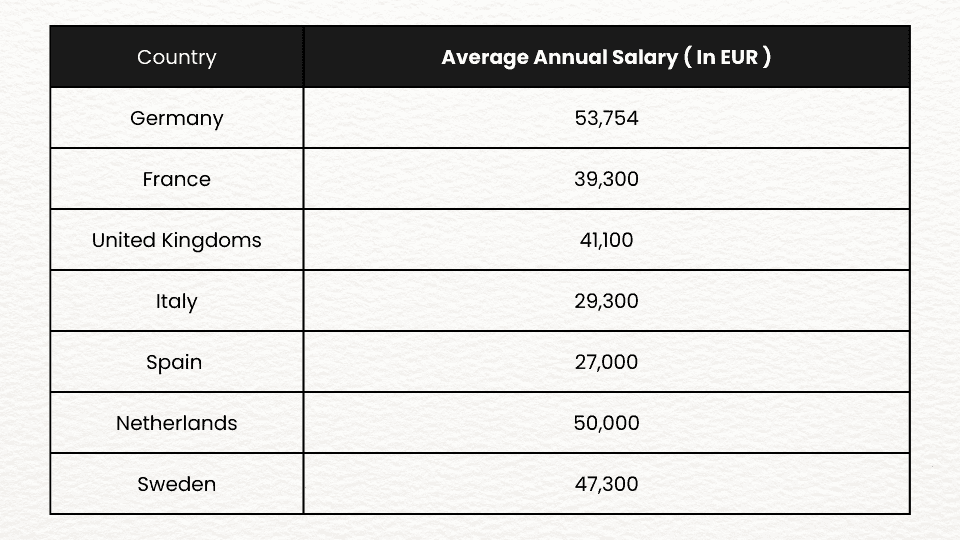Understanding Germany's Skilled Worker Immigration Act: How to Qualify and What It Means for Your Career
- September 11, 2024
- 5 min

Germany has long been recognized as one of the world's leading economies, with a strong industrial base and a reputation for innovation. However, like many developed nations, Germany faces a demographic challenge: an aging population and a shrinking workforce. To address this, the German government has introduced the Skilled Worker Immigration Act (Fachkräfteeinwanderungsgesetz), which came into effect on March 1, 2020. This legislation is designed to attract skilled workers from non-EU countries, making it easier for them to work and settle in Germany. In this article, we will explore the key aspects of this Act, how to qualify, and what it means for your career.
What is the Skilled Worker Immigration Act?
The Skilled Worker Immigration Act is a comprehensive legal framework aimed at facilitating the immigration of skilled workers to Germany. The Act addresses the needs of the German labor market by simplifying the visa process for non-EU nationals, broadening the definition of a "skilled worker," and removing some of the previous barriers to immigration.
Key Features of the Act:
1. Expansion of the Skilled Worker Definition:
The Act expands the definition of a skilled worker to include both university graduates and individuals with vocational qualifications. This means that not only professionals with higher education but also those with specialized training are eligible to apply.
2.Simplified Visa Process:
The visa process has been streamlined, with the introduction of a fast-track procedure for skilled workers. Employers can now initiate the visa process on behalf of the worker, reducing the time it takes for a visa to be issued.
3.Job Offer Requirement:
While a job offer is still required for a visa, the Act allows for job seekers to enter Germany for up to six months to find a job. During this period, they can search for employment opportunities that match their qualifications.
4.Recognition of Foreign Qualifications:
The Act emphasizes the importance of recognizing foreign qualifications. The German government has established a system for evaluating and recognizing foreign vocational qualifications, making it easier for skilled workers to have their credentials accepted in Germany.
5.No Priority Check:
Previously, employers had to prove that no suitable candidate from Germany or the EU was available before hiring a non-EU worker. This "priority check" has been abolished for most occupations, making it easier for non-EU skilled workers to secure jobs in Germany.
How to Qualify Under the Skilled Worker Immigration Act
If you're considering a move to Germany under the Skilled Worker Immigration Act, there are specific criteria you must meet. Below are the key qualifications and steps involved:
1.Recognized Qualification:
To qualify as a skilled worker, you must possess a recognized qualification. This could be a university degree or a vocational qualification that has been recognized by the German authorities. The recognition process can be initiated online through platforms such as Recognition in Germany.
2.Job Offer or Job-Seeking Visa:
You must have a concrete job offer from a German employer in your field of qualification. Alternatively, you can apply for a job-seeking visa, which allows you to stay in Germany for up to six months while searching for employment.
3.Language Proficiency:
Proficiency in the German language is highly recommended. While some jobs may require only English, having a good command of German significantly improves your chances of employment and integration. The Goethe-Institut offers recognized German language certifications that can help you meet this requirement.
4.Work Experience:
Relevant work experience in your field is often required. Employers will look for candidates who not only meet the educational qualifications but also have practical experience.
5.Financial Stability:
You must be able to demonstrate that you have sufficient financial resources to support yourself during your stay in Germany, especially if you are entering on a job-seeking visa.
What Does the Act Mean for Your Career?
Germany's Skilled Worker Immigration Act presents significant opportunities for individuals seeking to advance their careers in one of the world's most stable and prosperous economies. Here’s how this Act can impact your career:
1.Access to a High-Demand Job Market:
Germany is facing a shortage of skilled workers in various sectors, including IT, engineering, healthcare, and skilled trades. By qualifying under this Act, you gain access to a job market with high demand for your skills, which can lead to better job security and career growth.
Statistic: According to a 2023 report by the German Federal Employment Agency, there are currently over 1.2 million job vacancies in Germany, with a significant portion in the skilled labor sector .
2.Competitive Salaries:
Skilled workers in Germany enjoy competitive salaries, with the potential for growth as you gain experience. For instance, the average annual salary for an IT professional in Germany is around €60,000, which can increase significantly with experience and expertise.
Statistic: Data from Statista shows that the average annual salary for IT professionals in Germany has increased by 15% over the past five years, reflecting the growing demand for tech skills .
3.Work-Life Balance:
Germany is known for its strong emphasis on work-life balance. The standard workweek is 35-40 hours, with generous vacation time and public holidays. This allows for a healthier lifestyle and more time to enjoy personal pursuits.
Statistic: A 2022 survey by the Organization for Economic Cooperation and Development (OECD) ranked Germany as one of the top countries for work-life balance, with an average of 28 days of paid vacation per year.
4.Permanent Residency and Citizenship Pathways:
One of the most attractive aspects of the Skilled Worker Immigration Act is the potential for permanent residency and eventually, citizenship. After four years of living and working in Germany, you may be eligible to apply for permanent residency. With a long-term commitment to Germany, citizenship could be an option after six to eight years.
Statistic: The German Federal Ministry of the Interior reported that in 2022, over 70,000 non-EU nationals were granted permanent residency in Germany, a significant increase from previous years.
5.Opportunities for Family Members:
The Act also benefits family members of skilled workers. Spouses and children can accompany you to Germany, and your spouse is permitted to work without any restrictions. This ensures that your family can also enjoy the benefits of living in Germany.
Why Choose iGuru Immigrations?
Navigating the complexities of Germany's immigration system can be challenging. This is where iGuru Immigrations comes in. With years of experience in helping individuals and families immigrate to countries like Germany, iGuru Immigrations offers personalized services tailored to your needs.
Why iGuru Immigrations?
- Expert Guidance: The team at iGuru Immigrations is well-versed in the latest immigration laws and policies, ensuring that you receive accurate and up-to-date information.
- Comprehensive Support: From document preparation to visa application and job search assistance, iGuru Immigrations provides end-to-end support to make your immigration journey as smooth as possible.
- Proven Track Record: iGuru Immigrations has successfully helped thousands of clients achieve their dream of working and living in Germany.
Conclusion
Germany's Skilled Worker Immigration Act is a significant step toward addressing the country's labor market needs while providing opportunities for skilled professionals from around the world. By meeting the qualifications and understanding the benefits, you can leverage this Act to advance your career in Germany. Whether you're an IT professional, engineer, healthcare worker, or skilled tradesperson, Germany offers a promising future with competitive salaries, excellent work-life balance, and a clear path to permanent residency.
Remember, the immigration process can be complex, but with the right support from experts like iGuru Immigrations, you can navigate the journey with confidence. Explore your options today and embark on a rewarding career in Germany.
